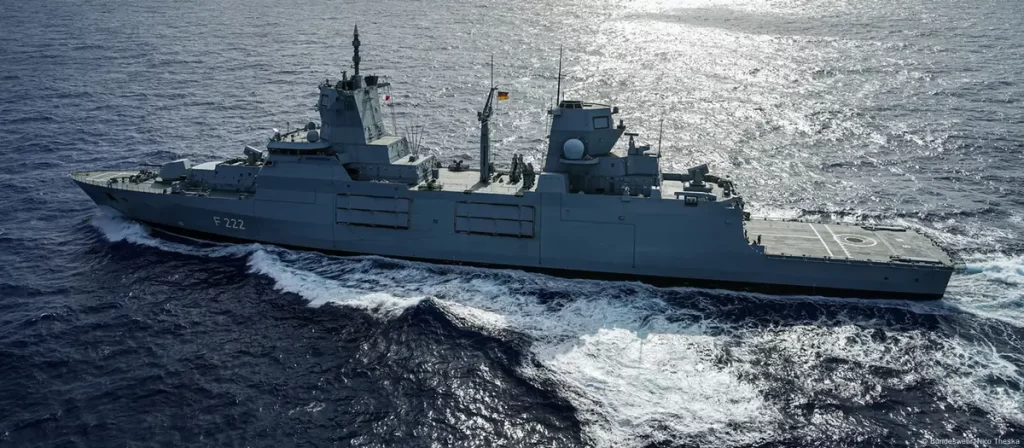China issued a stern warning to Germany on Saturday after two German warships sailed through the Taiwan Strait, the sensitive waterway separating mainland China from the self-ruled island of Taiwan.
The Chinese military spokesperson, Li Xi, said in a statement that “the German side’s behavior increases security risks and sends incorrect signals.” Li added that the People’s Liberation Army had deployed sea and air forces to “monitor and warn off” the German vessels, emphasizing that Chinese forces in the region would “resolutely counter all threats and provocations.”

German Defense Minister Boris Pistorius confirmed that the frigate Baden-Württemberg and the supply ship Frankfurt am Main had transited the strait. This marks the first time in over two decades that Germany has sent warships through the waterway, a move that aligns with similar operations conducted by other countries, particularly the United States.
The incident highlights the growing tensions between Beijing and Taipei, as well as the broader geopolitical complexities in the region. China claims Taiwan as a renegade province and asserts jurisdiction over the 180 km-wide (110 mile-wide) Taiwan Strait. However, Germany, along with many other nations, maintains that such naval transits are compatible with international rules on freedom of navigation.
This naval passage comes amid heightened military activities in the area. In May, China conducted large-scale military drills in the strait, describing them as a “test” of its capability to seize control of Taiwan.

The German warships’ transit through the Taiwan Strait signals Berlin’s increasing engagement in the Indo-Pacific region and its support for the principle of freedom of navigation. It also reflects the growing international concern over China’s assertive actions in the area.
As tensions continue to rise, the international community is closely watching how this incident might affect diplomatic relations between China and Germany, as well as its potential impact on broader regional stability. The situation underscores the delicate balance that countries must navigate in asserting their rights to freedom of navigation while avoiding escalation in this strategically important region.
The German government has not yet responded to China’s accusations, but the incident is likely to spark further diplomatic discussions between Berlin and Beijing in the coming days.
bbc.com



